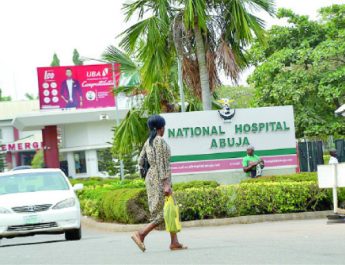The 36 state governors in Nigeria have been enveloped in a state of frenzy over the recent Supreme Court judgement which declared local government areas (LGAs) in the country financially autonomous
By Udoka Ekeleme, Abuja
There has been palpable panic in the camp of the Nigerian Governors’ Forum (NGF) since Thursday, July 11, 2024 when the country’s apex court, the Supreme Court delivered a landmark judgement barring members of the NGF from tampering with the funds of Local Government Areas (LGAs) in their states. Though, since the Supreme Court judgement, many of the governors have been carrying on as if not being affected by the judgement, there are certain facts related to the judgement that suggest that the governors are not at ease.
One, part of the states’ budgets have link with the LGA funds since the states hitherto ran a joint account with the LGAs, and governors appropriated LGAs’ funds. Should the judgement be implemented, the governors would have lost part of their states’ revenue projection from the LGAs’ funds. Secondly, the states that have created what is referred to as Local Council Development Areas (LCDAs), entities that have no place in the Constitution, can no longer share legitimate LGAs’ funds with those their illegal creations. Thirdly, about 437 LGAs across the country which are run by Caretaker Committees, are by the Supreme Court judgement, barred from receiving their monthly allocation from the Federation Account. Thus governors of the states where such LGAs are located cannot receive their funds in their joint accounts. These complicating issues have raised the blood pressure of the state governors.
On Thursday, July 11, 2024, the Supreme Court in Abuja granted financial autonomy to the 774 LGAs in the country. The Supreme Court had ruled it was unconstitutional for governors to hold onto funds meant for LGAs. In the Federal Government suit marked “SC/CV/343/2024 filed on May 24, 2024, wherein it prayed the apex court to among other things declare full autonomy for the LGAs, the Supreme Court had in a unanimous decision by a seven-member panel barred the 36 governors of the Federation from receiving, withholding, tampering or utilizing funds that stand to the credit of LGAs.
In the lead judgement delivered by Justice Emmanuel Agim, the Supreme Court also ruled that no House of Assembly of any state has the power to make laws that could in any manner grant governors the right to interfere with statutory allocations meant for the LGAs. The apex court added that the LGAs must be administered by democratically elected officials, adding that from the day of the judgement all funds meant for the LGAs from the statutory allocations and other sources must be paid directly to the LGAs’ accounts.
The judgement read, “Demands of justice require a progressive interpretation of the law. It is the position of this court that the Federation can pay LGA allocations to the LGAs directly or pay them through the states.
“In this case, since paying them through the states has not worked, justice of this case demands that LGA allocations from the Federation Account should henceforth be paid directly to the LGAs”.
Discordant tunes have been trailing the Supreme Court judgement, with diverse voices interpreting the judgement in different angles, taking note of its implications for the nation’s Constitution. For example, up to 20 states that do not have democratically elected officials running the affairs of their LGAs risk losing their June 2024 statutory allocations with about 437 affected. These states include Abia, Akwa Ibom, Anambra, Benue, Bauchi, Cross River, Delta, Enugu and Jigawa. Others are Katsina, Kwara, Kano, Imo, Ondo, Osun, Plateau, Rivers, Sokoto, Yobe and Zamfara States. However, experts have insisted that it would be unconstitutional for the Federal Government to withhold funds belonging to LGAs until the National Assembly has amended the Constitution to accommodate the Supreme Court judgement.
Owei Lakemfa, a public affairs analyst and columnist, has warned both the Federal Government and the states to be mindful of how they interpret the judgement to avoid breaching the provisions of the country’s Constitution. Lakemfa insisted that the Constitution cannot be amended by fiat, not even the judgement of the Supreme Court. He added that the LGAs cannot be referred to as federating units.
Reactions from prominent Nigerians have been on the trail of the Supreme Court judgement declaring LGAs financially autonomous. For example, the governor of Kwara State and Chairman of the NGF, Mallam AbdulRahman AbdulRazaq has said that the governors were happy over the Supreme Court judgement that granted autonomy to local governments in the country.
AndulRazaq said:” We welcome the ruling of the Supreme Court; compliance is a given. Our attorney generals have applied for the enrollment order, which we’ll study carefully. By and large, the Governors are happy with the devolution of power concerning local government autonomy. It relieves the Governors of some burdens. People don’t know how much states expend in bailing out local governments. It’s not going to affect the state; we’ve not tampered with local government funds.
“What the local governments have to do is to manage themselves, especially with the upcoming minimum wage. They have to manage their affairs and make sure salaries are paid and traditional rulers get their five percent. Those are the main issues. The Forum will meet next Wednesday to look at the issues wholly and then come up with resolutions”.
Also reacting, the Northern Elders Forum (NEF) lauded the Supreme Court judgement, insisting that the landmark decision was anticipated to catalyze substantial development at the grassroots level.
NEF said the judgement would herald a new era of decentralized power and resources within the nation’s governance framework.
Abdul-Azeez Suleiman NEF’s Director of Publicity and Advocacy said: “This bold move, which marks a departure from the past practices of centralizing power and resources in the hands of respective state governments, holds great promise for empowering local governments to take charge of their affairs and address the pressing needs of their communities.”
“One of the pivotal advantages of financial autonomy for LGAs is the enhancement of their capacity to plan and execute development projects tailored to the unique necessities of their respective communities.
”In the past, local governments had been marginalized, emasculated, and sidelined in the decision-making process, with the bulk of resources and power concentrated at the state level. This has led to inefficiency and ineffectiveness in delivering basic services such as healthcare, education, and infrastructure at the grassroots level.”
The Middle Belt Forum (MBF), said that the autonomy would usher meaningful development at the Local Government level in the country.
The MBF noted that the ruling would pave the way for the conduct of free, fair and credible elections at the third tier of government, adding that it would also attract the best hands to vie for positions in the elections.
MBF National President MBF, Dr. Bitrus Pogu who spoke in Makurdi said the ruling would usher in meaningful development in the 774 LGAs of the country.
Pogu: “The ruling was a beautiful victory for democracy. The President does not have to be tied down by the bottlenecks created by the governors.
“I believe that there is going to be development in rural areas; and serious people will now come out and contest to be chairmen and councillors in the local governments and by so doing we will get the best materials for local government administration in this country.
A Former Senate President and the Chairman, Board of Trustees, BoT, of the main opposition Peoples Democratic Party (PDP), Senator Adolphus Wabara, said:” We now have three tiers of Government.
Governors didn’t allow LGAs to function properly and constitutionally. This is the best judgement I have seen the Supreme Court deliver since this year.”
Wabara, who was once the chairman of Ukwa East LGA in Abia State, said that the judgment would also help fast-track development in the local communities as councils are the closest government to the grassroots.
“Local Governments will now develop very fast, and there will be accountability in Council administration because the people will elect people they can hold accountable and not the Governor’s cronies to run their affairs.”
The Association of Local Government Organisation of Nigeria (ALGON) has hailed the Supreme Court judgment granting financial autonomy to local governments, but says it is only the beginning of the reforms needed to truly empower grassroots governance.
In a statement on Sunday, July 14 ALGON Chairman, Board of Trustees, Shaban Ohinoyi Shuaibu, congratulated President Bola Ahmed Tinubu and Attorney General Lateef Fagbemi on the judgment, calling it a significant milestone and a win for the people of Nigeria.
The pan-Yoruba socio-cultural organization, Afenifere, yesterday, advised the 774 local government areas across the country not to make themselves appendages of the Federal Government as a result of the financial autonomy granted them by the Supreme Court.
Afenifere’s National Publicity Secretary, Mr Jare Ajayi, in a statement, commended the Federal Government and the Judiciary over last Thursday’s ruling on local government autonomy.
Ajayi said: “Those holding these positions need to be reminded that the local governments, like other tiers of government, are entitled to the funds in the federation account. The constitution states that federal allocations must be disbursed in this ratio: 52.68 % to Federal; 26.72 to States and 20.60% to Local Governments.
“No tier of government should withhold or corner the allocation meant for another tier. If it happens, such a thing can be challenged in court. And, as we have witnessed in the recent past, the courts would normally rule in favour of the litigant.
“The fact that states get their allocation directly from the federation account does not make them appendages of the Federal Government. By the same token, the fact that local government areas are to get their respective allocations from the same federation account would not make them appendages of the federal government. Any local government chairman that kowtows to Abuja simply because his council’s allocations come from Abuja is being servile and is ignorant.”




